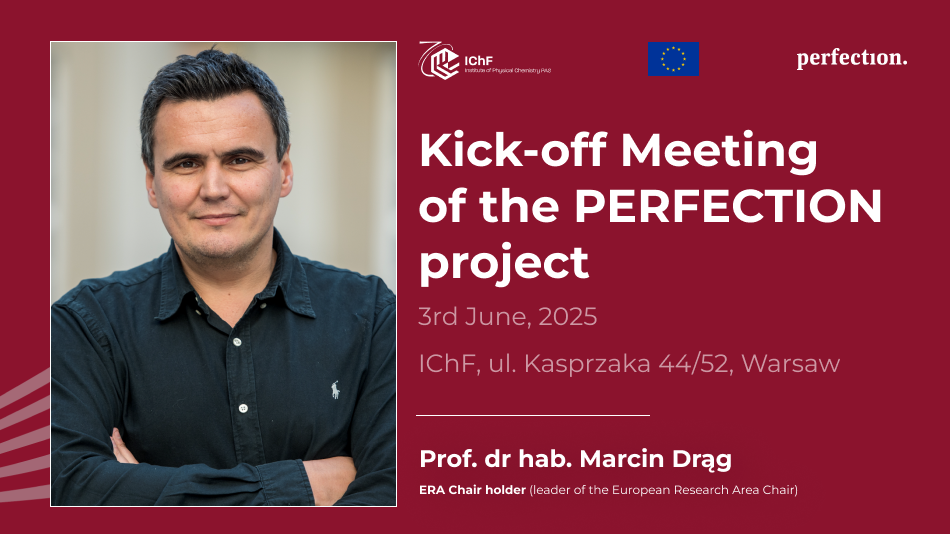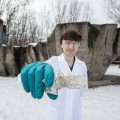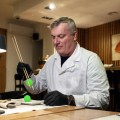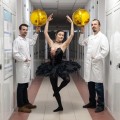The Kick-Off Meeting of the ERA Chairs “PERFECTION” Project
Reading time: about 3 minuts

We are pleased to invite you to the Kick-Off Meeting of the PERFECTION Project (“In search of PERFECTION - the phenomenon of unnatural amino acids in chemical biology for biological and medical applications”). The project is funded by the prestigious ERA Chairs grant, an initiative of the European Commission within the Horizon Europe program.
As part of the project, Professor Marcin Drąg is establishing at our Institute the first Centre for Chemical Biology within the Polish Academy of Sciences. The new Centre will conduct research on the use of amino acids to monitor the activity of proteolytic enzymes to advance early disease diagnostics and the development of new therapies.
The event will be held on 3 June 2025, from 12:30 to 16:00, as part of the Institute’s 70th anniversary celebrations.
Event agenda :
Official Part – Aula:
12.30 – 12.50 | Opening of the Kick-off Meeting
- Dr. hab. Adam Kubas, prof. IChF – Director
- Prof. Robert Holyst – Project Coordinator
12:50 – 13:45 | Inside PERFECTION: Research Ambitions and Opportunities
- Prof. Marcin Drąg – ERA Chair Holder
- MSc Agnieszka Tadrzak – Project Manager
13.45 – 14.00 | Technical break
14.00 – 15.00 | Keynote Lecture "Designing enzymes de novo"
- Prof. Donald Hilvert, ETH Zurich
15.00 – 16.00 | Informal networking and refreshments
Venue: IChF Aula, Kasprzaka 44/52, 01-224 Warsaw
The event will be honoured by the presence of Prof. Donald Hilvert (ETH Zurich), who will deliver a keynote lecture entitled "Designing enzymes de novo" (details below).
His talk will explore how recent advances in computational protein design and directed evolution are enabling the creation of entirely new biocatalysts to meet the growing demands of sustainable chemistry.
We look forward to seeing you there!
Keynote Lecture Abstract:
Title: Designing enzymes de novo
Prof. Donald Hilvert
Laboratory of Organic Chemistry, ETH Zürich, Zurich, Switzerland
https://protein.ethz.ch/the-group/group-members/hilvert-donald.html
Biocatalysis is emerging as a key enabling technology for the development of a greener and more efficient chemical industry. Because natural enzymes are seldom suitable for direct use in chemical processes, however, protein engineering is typically required to optimize their properties for practical applications. For many desirable chemical transformations, natural enzymes may not even exist. Recent advances on the computational design of atomically accurate protein structures, combined with high-throughput evolutionary optimization, are providing a potential roadmap for reliably creating new-to-nature biocatalysts in response to diverse societal demands. In this lecture, the strategies, opportunities, and challenges facing this emerging field will be surveyed.

- Date: 23.05.2025





